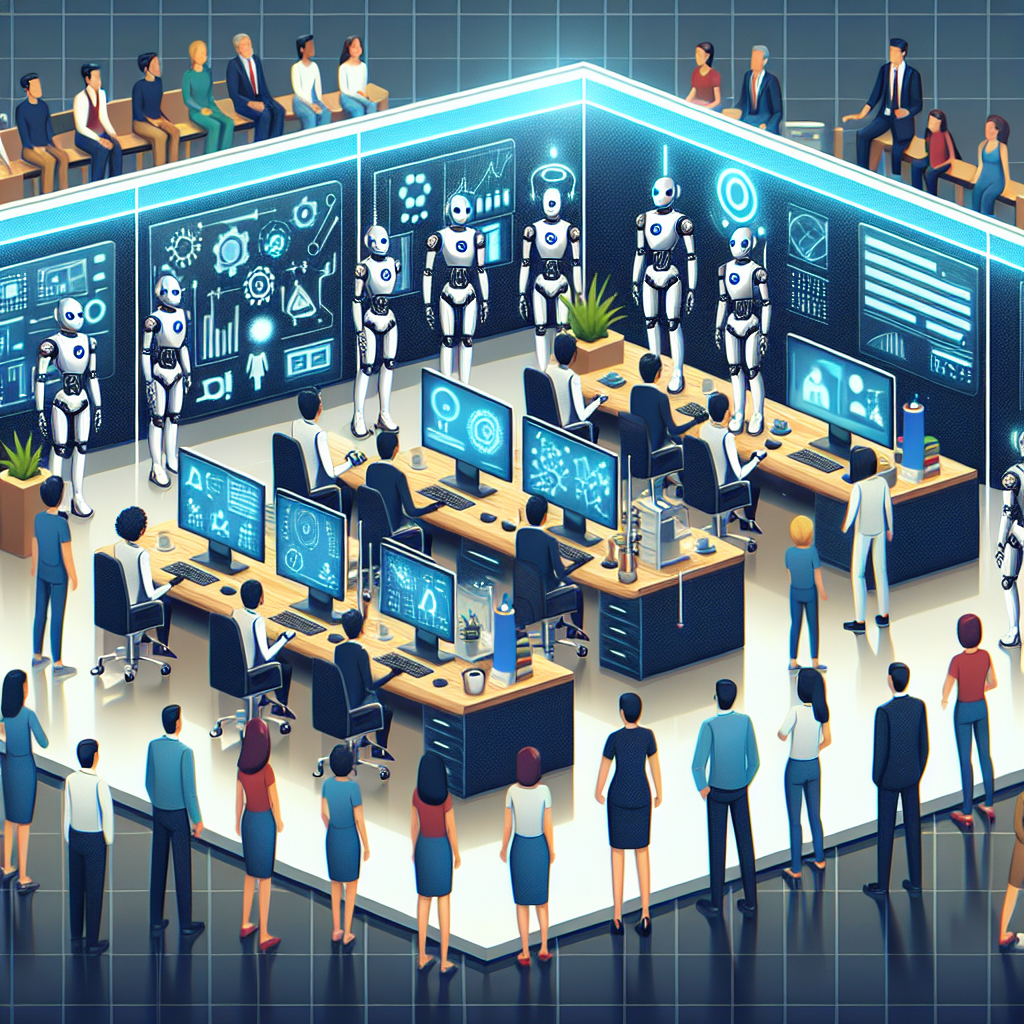Artificial General Intelligence (AGI) is a term used to describe the hypothetical ability of a machine to perform any intellectual task that a human can do. This concept has been the subject of much speculation and debate in recent years, as advances in artificial intelligence (AI) have accelerated at a rapid pace. One of the key questions that has emerged from this discussion is whether AI will eventually replace human jobs, leading to widespread unemployment and economic disruption. In this article, we will explore the potential impact of AGI on the future of work and consider whether AI will indeed replace human jobs.
The Rise of Artificial Intelligence
Artificial intelligence has made significant strides in recent years, with advances in machine learning, natural language processing, and other areas leading to the development of increasingly sophisticated AI systems. These systems are now capable of performing a wide range of tasks that were once thought to be the exclusive domain of human intelligence, such as image recognition, language translation, and even playing complex games like chess and Go.
As AI technology has advanced, its applications have expanded into a variety of industries, from healthcare and finance to transportation and entertainment. AI-powered systems are now being used to automate routine tasks, improve decision-making processes, and enhance the overall efficiency of businesses and organizations. This has led to a growing interest in the potential of AI to transform the way we work and live.
The Impact of AGI on the Future of Work
The development of AGI has the potential to have a profound impact on the future of work. On the one hand, AI has the ability to automate many tasks that are currently performed by humans, leading to increased productivity and efficiency. This could free up workers to focus on more creative and strategic tasks, leading to higher levels of innovation and job satisfaction.
However, the widespread adoption of AI also raises concerns about the displacement of human jobs. As AI systems become increasingly capable of performing complex tasks, there is a risk that they could replace human workers in a wide range of industries, from manufacturing and retail to healthcare and education. This could lead to widespread unemployment and economic disruption, as workers are displaced by machines that are able to perform their jobs more efficiently and at a lower cost.
Will AI Replace Human Jobs?
The question of whether AI will replace human jobs is a complex and nuanced one. While it is clear that AI has the potential to automate many routine tasks currently performed by humans, there are also limitations to the capabilities of AI systems. For example, AI may struggle to perform tasks that require emotional intelligence, creativity, and complex decision-making skills, which are areas where humans excel.
Additionally, the widespread adoption of AI is likely to create new job opportunities in industries that are currently underserved by human workers. For example, AI-powered systems could revolutionize healthcare by enabling more accurate diagnoses and personalized treatments, leading to the creation of new roles for healthcare professionals. Similarly, AI could also create new opportunities in fields such as cybersecurity, data analysis, and customer service.
Ultimately, the impact of AI on the future of work will depend on how effectively organizations and policymakers are able to adapt to the changing landscape. By investing in education and training programs that prepare workers for the jobs of the future, and by implementing policies that support workers who are displaced by AI, we can ensure that AI enhances rather than replaces human jobs.
FAQs
Q: Will AI replace all human jobs?
A: It is unlikely that AI will replace all human jobs, as there are many tasks that require human intelligence and skills that are difficult for AI to replicate. However, AI has the potential to automate many routine tasks currently performed by humans, leading to changes in the types of jobs available.
Q: What industries are most at risk of job displacement due to AI?
A: Industries that rely heavily on routine tasks, such as manufacturing, transportation, and customer service, are most at risk of job displacement due to AI. However, other industries, such as healthcare and finance, are also likely to be impacted by the adoption of AI.
Q: How can workers prepare for the impact of AI on the future of work?
A: Workers can prepare for the impact of AI on the future of work by investing in education and training programs that develop skills that are in high demand in the age of AI, such as data analysis, programming, and critical thinking. Additionally, workers can stay informed about developments in AI and how they may impact their industry.
Q: What role can policymakers play in addressing the impact of AI on the future of work?
A: Policymakers can play a key role in addressing the impact of AI on the future of work by implementing policies that support workers who are displaced by AI, such as retraining programs and financial assistance. Additionally, policymakers can work to ensure that AI is developed and deployed in a way that benefits society as a whole.
In conclusion, the development of AGI has the potential to have a significant impact on the future of work, with AI systems capable of automating many routine tasks currently performed by humans. While there are concerns about the displacement of human jobs, there are also opportunities for AI to create new job opportunities and enhance the overall efficiency of businesses and organizations. By investing in education and training programs, and by implementing policies that support workers who are displaced by AI, we can ensure that AI enhances rather than replaces human jobs in the future.

